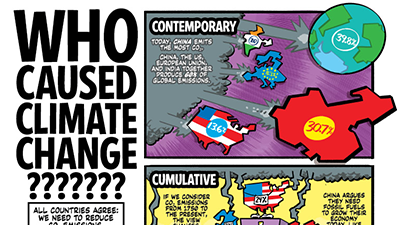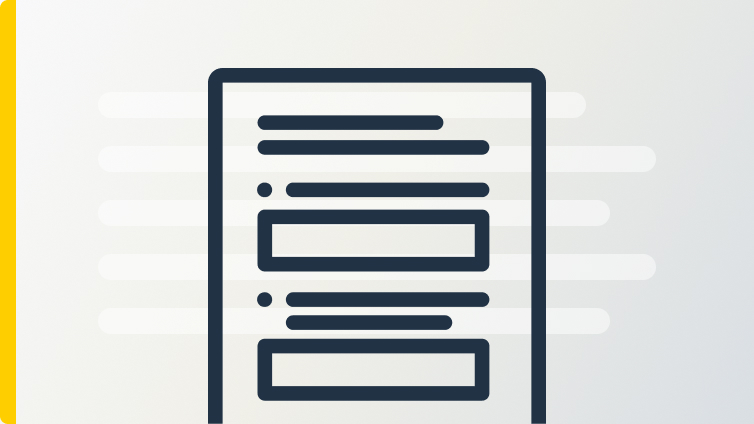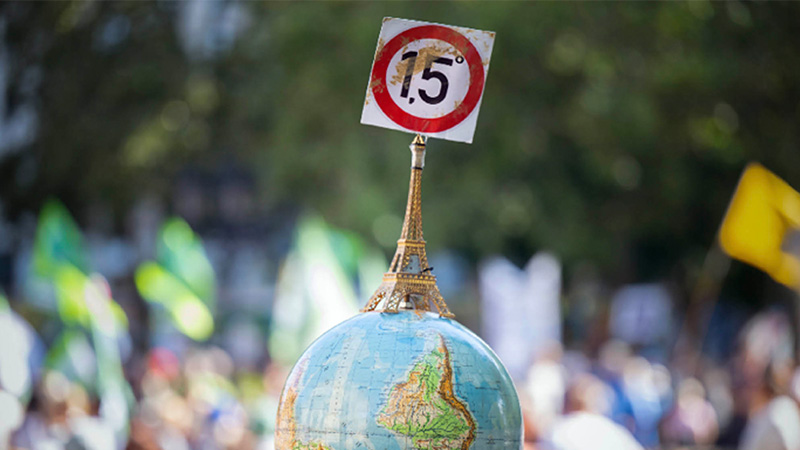International Climate Goals
Teacher Resources
Driving Question: How can setting effective goals help us address climate change?
Can international priorities and policies help—or hinder—climate action? Explore past policies and what can be done to make them more effective moving forward.
Learning Objectives:
- Understand the need for international collaboration in addressing climate change.
- Evaluate the successes and failures of previous climate policies.
- Identify strategies to make climate goals more effective.
Vocab Terms:
- anthropogenic
- contemporary
- emissions
- net zero
- per capita
Opener: International Climate Goals
To teach this lesson step, refer to page 2 of the Lesson 1.4 Teaching Guide.
This lesson is all about policies that are created to fight climate change. Explore some of the data you’ll encounter to help you make sense of those policies and build your data-analysis skills.
Who Should Act?
To teach this lesson step, refer to page 3 of the Lesson 1.4 Teaching Guide.
Infographics help students grasp concepts through a different medium. Learn more in our Infographics Guide.
All countries agree that we need to reduce carbon emissions, but none agree who has the most responsibility for making it happen. Explore what the data tells us in the infographic, then used what you’ve learned to consider the importance of perspective.
-
Guiding Questions
-
Before you read
Preview the questions below, and then skim the full infographic, paying attention to things like prominent colors, numbers, charts, and types of text. How do you know where to start and in which direction to read? How do you know which numbers are most important? What concept is the focus of the graphic?
While you read
Look for answers to these questions:
- What countries are most responsible for current carbon dioxide emissions?
- What country has the highest cumulative greenhouse gas emissions?
- Why do some countries argue that they should not have restrictions on their emissions?
- Today, which countries have the highest per capita emissions? Which countries have the lowest per capita emissions?
After you read
Respond to this question: Which countries do you think should be most responsible for reducing emissions? Why?
Global Policy Record
To teach this lesson step, refer to page 4 of the Lesson 1.4 Teaching Guide.
Check out our Video Guide for suggestions on incorporating videos in the classroom.
To address a global problem like climate change, we need international cooperation. Easier said than done. Watch the video to explore what’s worked and failed, then apply what you’ve learned to make a policy recommendation.
-
Guiding Questions
-
Before you watch
Preview the questions below, and then review the transcript.
While you watch
Look for answers to these questions:
- What is the IPCC?
- Why has the Kyoto Protocol largely been considered a failure?
- What is the Paris Agreement?
- Why is the Stockholm Declaration significant?
- Why was the Montreal Protocol considered successful?
- Why is the Kigali Amendment significant?
After you watch
Respond to this question: What do you think are the most important factors that have made climate policies successful?
International Warming Targets
Exploring Climate Disagreement
Turn students into AI detectives by teaching them how AI works, where it fails, and how to critically evaluate its responses.
Try this: Have students use AI to verify the claims in this activity. Then, prompt them to ask the AI to cite its sources and assess its credibility. Create a classroom culture where claim testing or asking “How do we know this is true?” is encouraged.
The 1.5° C goal ignited a wave of climate action. But looking ahead, what are the climate targets we need to inspire action into the future?
-
Guiding Questions
-
Before you read
Preview the questions below, and then skim the article. Be sure to look at the section headings and any images.
While you read
Look for answers to these questions:
- Why is it important to set climate goals?
- Why was the 1.5° C goal, set as a part of the Paris Agreement, significant?
- What’s the big deal about 1.5° C?
- Why was the 2018 special report shocking?
- What challenges and progress have been observed as a result of the 1.5° C goal?
After you read
Respond to this question: Should countries and leaders continue to pursue the 1.5° C goal, or should they adopt new strategies to address climate change?
How Can We Meet Our Goals?
To teach this lesson step, refer to page 8 of the Lesson 1.4 Teaching Guide.
This blog highlights how students can turn climate change data and evidence into action.
Policies at the international level rely on action at the national level. How can we move from goals to meaningful action?
Closer: International Climate Goals
To teach this lesson step, refer to page 9 of the Lesson 1.4 Teaching Guide.
You’ve explored the purpose of international climate policies and the strength and limitations of past strategies. How should we set goals moving forward?
Unit 1 Assessment: Introduction to Climate Change
To teach this lesson step, refer to page 9 of the Lesson 1.4 Teaching Guide.
This writing assessment is an opportunity for you to showcase what you’ve learned in this unit by analyzing documents and creating an argument about the significance of climate change.






